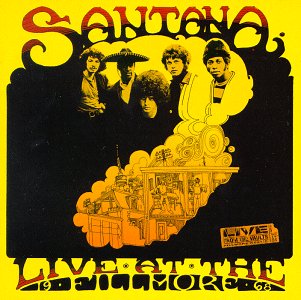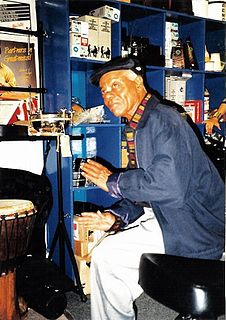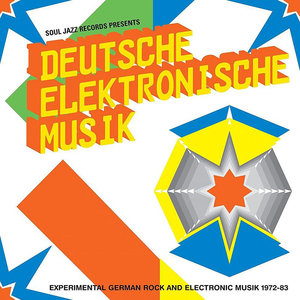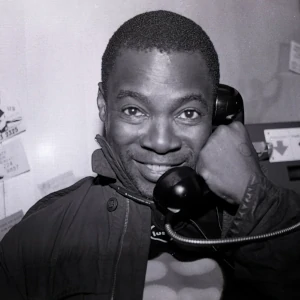
Carlos Humberto Santana Barragánaudio (help·info) is a Mexican and American guitarist who rose to fame in the late 1960s and early 1970s with his band Santana, which pioneered a fusion of rock 'n' roll and Latin American jazz. Its sound featured his melodic, blues-based lines set against Latin American and African rhythms played on percussion instruments not generally heard in rock, such as timbales and congas. He experienced a resurgence of popularity and critical acclaim in the late 1990s. In 2015, Rolling Stone magazine listed him at No. 20 on their list of the 100 greatest guitarists. He has won 10 Grammy Awards and three Latin Grammy Awards, and was inducted along with his namesake band into the Rock and Roll Hall of Fame in 1998.

Chicano rock is rock music performed by Mexican American (Chicano) groups or music with themes derived from Chicano culture. Chicano Rock, to a great extent, does not refer to any single style or approach. Some of these groups do not sing in Spanish at all, or use many specific Latin instruments or sounds. The subgenre is defined by the ethnicity of its performers, and as a result covers a wide range of approaches.
Latin rock is a term to describe a subgenre blending traditional sounds and elements of Latin American and Hispanic Caribbean folk with rock music. However, it is widely used in the English-language media to refer any kind of rock music featuring Spanish or Portuguese vocals. This has led to controversy about the scope of the terminology.

Brian Albert Gordon Auger is an English jazz rock and rock music keyboardist who specializes in the Hammond organ.

The Meadowlands is the third studio album by American indie rock band the Wrens, released by Absolutely Kosher Records on September 9, 2003, and in the UK two years later on September 19, 2005 by LO-MAX Records and in Germany by BB*Island. Recording of the album originally began in January 1999, but writer's block and a loss of faith in the tracks they were recording meant the band took four years to complete the album, with many songs being rewritten or scrapped as recording proceeded.
El Chicano was an American brown-eyed soul group from Los Angeles, California, whose style incorporated various modern music genres including rock, funk, soul, blues, jazz, and salsa. The group's name was from Chicano, a term for United States citizens of typically Mexican descent.
Malo is an American musical group known for its blend of Latino, rock, jazz and blues. The San Francisco-based ensemble was led by Richard Bean, Arcelio Garcia, and Jorge Santana, the brother of Latin-rock guitarist Carlos Santana.
Guillermo "Jorge" Santana was a Mexican guitarist, brother of musician Carlos Santana.

Live at the Fillmore 1968 is a two-CD live album by the rock band Santana. It was recorded at the Fillmore West in San Francisco from December 19 to December 22, 1968 – eight months before their first album came out – and released in 1997.

Armando Peraza was a Latin jazz percussionist and a member of the rock band Santana. Peraza played congas, bongos, and timbales.

Code: Selfish is a 1992 LP by British rock band The Fall. Their 14th full-length studio album, it entered the UK chart at number 21, although it spent only one week on the chart.

Santana is an American rock band formed in San Francisco in 1966 by Mexican-American guitarist and songwriter Carlos Santana. The band has undergone multiple recording and performing line-ups in its history, with Carlos Santana the only consistent member. Santana had early success with their appearance at Woodstock in 1969 and their first three albums, Santana (1969), Abraxas (1970), and Santana III (1971). Other important core members during this period include Gregg Rolie, Michael Carabello, Michael Shrieve, David Brown, and José "Chepito" Areas, forming the "classic" line-up.
Joseph Thomas "Coke" Escovedo was an American percussionist, who came from a prominent musical family including five musician brothers and his niece, Sheila E. He played in various genres, including R&B, jazz fusion and soul, with bands including Santana, Malo, Cal Tjader, and Azteca.
Brown-eyed soul, also referred to as Chicano soul, is soul music performed in the United States mainly by Latinos in Southern California, East Los Angeles, and San Antonio (Texas) during the 1960s, continuing through to the early 1980s. The trend of Latinos started with Latino rock and roll and rock musicians. "Brown eyed soul" contrasts with blue-eyed soul, soul music performed by non-Hispanic white artists.
Soul Jazz Records is a British record label based in London. Outside of releasing records, the label also publishes books, occasionally films and performs as a DJ set. The music releases labels from a variety of genres, including reggae, house, hip hop, punk rock, jazz, funk, bossa nova and soul.

Marcos Reyes ~ Marcos J. Reyes, born in 1960 in Bakersfield, California to parents from Chihuahua, Mexico, has been the Latin percussionist for the American progressive soul band War since 1998.

Ascención is the fourth album by Latin Rock band Malo, released in 1974.

Deutsche Elektronische Musik is a compilation album of German electronic and rock music released in 2010 by Soul Jazz Records.

Ayodele Fadele was an English musician and music journalist who was active from the mid-1980s. He wrote for the NME in the late 1980s and early 1990s, and was one of the first music critics to introduce then emerging US rap artists such as Public Enemy, De La Soul and A Tribe Called Quest to mainstream British music fans.

Nu Yorica! – Culture Clash in New York City: Experiments in Latin Music 1970–77 is a 1996 compilation album of Latin music released by Soul Jazz Records in 1996. The album was received positive reviews in The Guardian and Muzik on its initial release. A follow-up album titled Nu Yorica 2! was released in 1997. The album was reissued in 2015 with remastered audio and some re-arranged and re-placed tracks.












